Welcome to the April 2020 Round Up, where we were all reading amidst a pandemic, our lives suddenly shifted from going to work, to the shops or coffee for catch-ups, to school, to uni or just out in general for various activities was very quickly shut down, and we found ourselves limited to our immediate houses, only heading out to essential services. In this time, we all thought we would get more reading done – and maybe we did, and maybe we didn’t. But our numbers are on par – seven for young adult, and ten for younger readers, of these, we have had several double ups.
Now to numbers – we had ten books reviewed in the children’s section, and seven in young adult. In the children’s reviews, we had three reviewers – me, Veronica and Amanda. Between us we reviewed ten books, and it was really difficult to choose which ones to include. There should have been eleven but one of mine didn’t upload to the system properly. It was a mix of novels, picture books and graphic novels.
Amanda reviewed a book called What A Lot of Nonsense by Sheena Knowles, a picture book that is told in poetry. Amanda found that there were two ways to read this book. The first way is to simply enjoy the text – in the same way that readers do with many picture books. However, the second way is to go on a word treasure hunt for the anagrams in the story – this sounds like a lot of fun to me! Amanda also comments that this original way of engaging with the text was fun and challenging and would therefore work on multiple levels for many different readers.
Veronica at the Burgeoning Bookshelf reviewed two books that she tagged as addressing challenging issues. The first, Searching for Seashells by Kerry Rosser is another picture book that deals with grief and loss in childhood for children, and sensitively validates anger that children might feel at various times and for various reasons. It is about loss, and how an older brother deals with it – and how working together can help people deal with these various emotions.
The second book that Veronica says addresses challenging issues is Go Away Glob by Sarah Elliot Smyth deals with anxiety and fears in childhood, and how we deal with them. It normalises social anxiety for children and makes sure they know its not bad to feel that way – they don’t need to feel ashamed, Veronica says.
After reading Veronica’s reviews on these two books, it makes me wonder if adults need to read these books as well. I’ve started reading picture books again, and sometimes they send a much more powerful message than some of the adult books I read, or they take a complex issue and explain it really well.
Rounding up the trio is my mix of picture books, and novels that explore a variety of themes. This being April, and as we acknowledged ANZAC Day, I’m highlighting my review of Anzac Girl: The War Diaries of Alice Ross-King first. We weren’t able to attend any services this year, so we stood at the end of our driveways at dawn, read books and streamed services from where they were happening sans attendees. Reading and reviewing this book on ANZAC Day felt appropriate to mark the occasion and what our ADF has done in war service, and in peace time, but also because my own brother serves in the army, and he has been deployed, as has his fiancée. Alice’s experience of hearing from Harry was much different to ours today – but the fears are still the same. What Kate does with her great-grandmother’s story however, is tell it in a sensitive and accessible way for ages six and older. She tells of the horror and sadness, the story is visceral and emotive – the emotions are there, the facts are there. And it was exquisitely illustrated by Jess Racklyeft.
Other books reviewed were
Friday Barnes: Big Trouble
The Complete Adventures on Nim’s Island by Wendy Orr
Sherlock Bones and the Natural History Mystery by Renée Treml
Ribbit Rabbit Robot by Victoria MacKinlay and Sofya Karmazina
Puppy Diary: The Great Toy Rescue by Yvette Poshoglian
I feel that most of these if not all were reviewed by me – as it seems that so far, I am one of the main contributors to this category, along with Amy at Lost in a Good Book. It’s nice to see a few new names I can feature here and hope that I can feature a few more different ones too. With so few reviews in this category, I’m trying a new idea – highlighting a few and aiming to link the rest in a list to see if this works as a round-up.
For Young Adult, we have six reviews – four for Amethyst Pledge by Leonie Rogers. We had two reviews for the Anna Whateley debut, Peta Lyre’s Rating Normal, a young adult #OwnVoices book featuring disability, neurodiversity and LGBTQIA themes
Considering these statistics, writing the Young Adult portion of this round up was a bit more of a challenge – two books to feature that haven’t been featured before with multiple reviews, and more to come. One will also fit well into the diversity round up, but maybe we’ll each choose a different review. Amethyst Pledge did also have two reviews by the same reviewer, which in theory brings this down to six reviews.
Amethyst Pledge was reviewed by Brenda Telford, Cloggie Downunder and Carolyn Scott on Goodreads. Cloggie say that has created a worthy and relatable protagonist, and that the book, which is an exciting opening to the series – with the second book being eagerly anticipated by readers.
Brenda says it was emotive and action packed – much like Cloggie, she devoured it and can’t wait for the second book.
Carolyn enjoyed the fully formed society and world building in this novel, and suggests readers will learn more about the system of magic as the series goes on. She points out the gradual plot development. She says it will appeal to YA readers of all ages.
I included all three of these reviews as often, Goodreads reviews are quite short and therefore, I felt given YA had so few different reviews this month, I’d include them all.
Finally, we had Emily’s review of Peta Lyre’s Rating Normal by Anna Whateley. Emily says she wants to hug the book – it has an honest and authentic depiction of the neurodivergent experience, is an #OwnVoices book and says that for this book, we needed to be in the head of the main character Peta – and as I read this, I’m finding this is the most effective way of telling the story too. Emily says it was liberating seeing how Peta was able to find her way in the world whilst her struggles and observations could be heartbreaking at the same time.
This novel also touches on LGBTQIA themes – and Emily says she liked seeing Sam’s point of view as well.
Well, this has been a longer than usual round up as I experiment with different ways of presenting the information – the repetition in young adult this month certainly proved to be a challenge trying to work out what to use, and we’ll have to see how May shapes up.
Until the next round up!

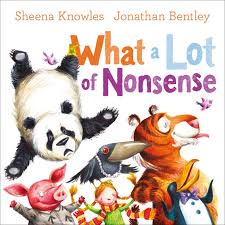
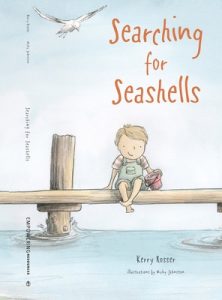
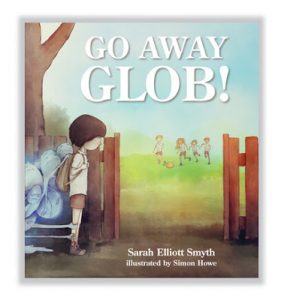
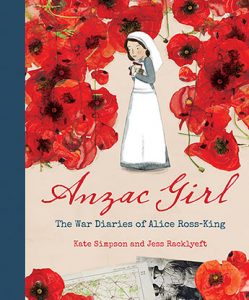
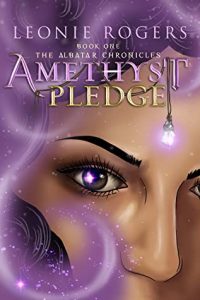





Thank you for featuring my reviews Ashleigh. I am also hoping reviews of the children’s and Young Adult books by AWW’s increase over the year.
Great wrap up.